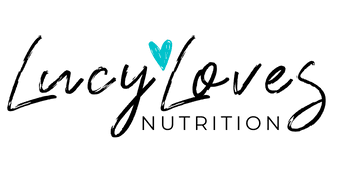Not all reflux comes with heartburn. Silent reflux, medically known as Laryngopharyngeal Reflux (LPR), can masquerade as various other conditions, making it particularly tricky to identify. As a nutritional therapist, I’ve seen countless clients struggle with unexplained symptoms for years before discovering that silent reflux was the underlying cause.

Silent reflux occurs when stomach contents travel up past your oesophagus into your throat and voice box (larynx). Unlike traditional acid reflux, you might not feel the typical burning sensation in your chest, hence the term ‘silent’. Here are the key silent reflux symptoms to watch out for:
- Persistent cough, especially when lying down or after meals
- Hoarseness or a problem with your voice (tight or croaky)
- Frequent throat clearing
- A feeling of a lump in your throat or sensation of food sticking
- Difficulty swallowing, especially tablets or solid foods
- Excess mucus in the throat
- Post-nasal drip
- Sore or irritated throat
- Ear pain or feeling of blocked ears
- Excessive burping particularly during the day
- Occasional unpleasant acid or bilious taste at back of mouth
Why Silent Reflux Often Goes Undiagnosed
Silent reflux frequently gets misdiagnosed because its symptoms can mimic many other conditions. Healthcare providers might initially attribute the symptoms to chronic cough, asthma, or allergies. Some patients find themselves being treated for post-nasal drip or recurring throat infections, while others may have their voice problems attributed to overuse or strain. This confusion often leads to delayed diagnosis and inappropriate treatments that fail to address the root cause.
Risk Factors
Several lifestyle and health factors can increase your likelihood of developing silent reflux. Being overweight puts additional pressure on your digestive system, making it easier for stomach contents to travel upwards. Smoking and regular alcohol consumption can both irritate the throat and relax the sphincter muscles that normally prevent reflux. Eating large meals late at night gives more opportunity for stomach contents to reflux while lying down. Certain medications may also contribute to the condition, and the impact of stress and anxiety on our digestive system shouldn’t be underestimated. This is a key risk factor I see with my clients.
The Connection to Traditional Reflux
While silent reflux and traditional gastro-oesophageal reflux disease (GORD) share the same fundamental mechanism of stomach contents travelling upwards, they present quite differently in the body. Traditional reflux typically causes the familiar burning sensation in the chest, while silent reflux might only manifest as throat symptoms. The areas affected also differ, with silent reflux reaching higher into the throat and voice box. Many people with silent reflux may not even realise they have a reflux condition.
The Hidden Role of Bile in Silent Reflux Symptoms
One often-overlooked aspect of silent reflux is the significant role that bile plays in symptoms. Thick, sludgy bile can be a common underlying cause of silent reflux symptoms. When bile doesn’t flow properly, it can contribute to increased pressure in the digestive system and lead to reflux of both acid and bile into the throat area. This is particularly relevant for those who experience symptoms despite making dietary changes and taking a proton pump inhibitor (PPI), as addressing bile flow can be a crucial step in managing the condition effectively.
The Impact on Daily Life
Silent reflux can significantly affect:
- Voice quality (especially for singers or public speakers)
- Sleep quality
- Breathing comfort
- Professional performance
- Social confidence
- Overall throat health

Three Essential Tips for Managing Silent Reflux
1. Master Your Meal Timing
The way you approach your meals can significantly impact your symptoms. Rather than focusing on eliminating foods, start by creating a sustainable mealtime strategy:
- Eat regularly every 3-4 hours while awake
- Never let yourself get too hungry, as this can increase acid production
- Practice mindful eating
This approach helps maintain stable stomach acid levels throughout the day and prevents the excessive pressure that can trigger reflux symptoms.
2. Transform Your Evening Routine
Your night-time habits play a crucial role in managing silent reflux:
- Elevate your pillow or bed head to prevent acid travelling up during sleep
- Make dinner your lighter meal of the day
- Allow a full 3-hour gap between your last meal and bedtime
- Consider gentle walking after dinner to aid digestion
These adjustments help utilise gravity to keep stomach contents where they belong and promote better sleep quality.
3. Address Stress Levels
Stress is often overlooked but plays a significant role in silent reflux. When we’re stressed:
- Digestion becomes compromised
- Muscle tension can affect the throat and oesophagus
- Eating patterns often become irregular
- Sleep quality suffers
Consider incorporating stress-management techniques such as:
- Deep breathing exercises
- Regular gentle exercise
- Mindfulness practices
- Setting boundaries around work and rest
- Creating calming bedtime routines
Taking Control of Your Silent Reflux Symptoms
Silent reflux can feel like an invisible battle, but with the right tools and adjustments, it’s possible to find long-lasting relief. Small changes to your diet and lifestyle, combined with a better understanding of your triggers, can make a big difference in managing symptoms and improving your overall wellbeing. I also have a few favourite supplements that have made a world of difference to my client’s symptoms.
With specialist training in reflux management through Digestion with Confidence, I’m passionate about helping clients address silent reflux in a natural, sustainable way. My focus is on providing practical, holistic strategies for those who want to reduce their reliance on medications like proton-pump inhibitors (PPIs) or transition off them completely. By identifying root causes and offering tailored support around diet, lifestyle, supplements and stress, I help clients both in Cornwall and online, feel confident around food again and regain control of their health.
If any of the symptoms above sound familiar and you’d like to chat further please book in for a free no obligation chat.
Remember, while these strategies can be highly effective, if your symptoms persist or worsen, it’s important to consult with your GP for proper medical evaluation.
